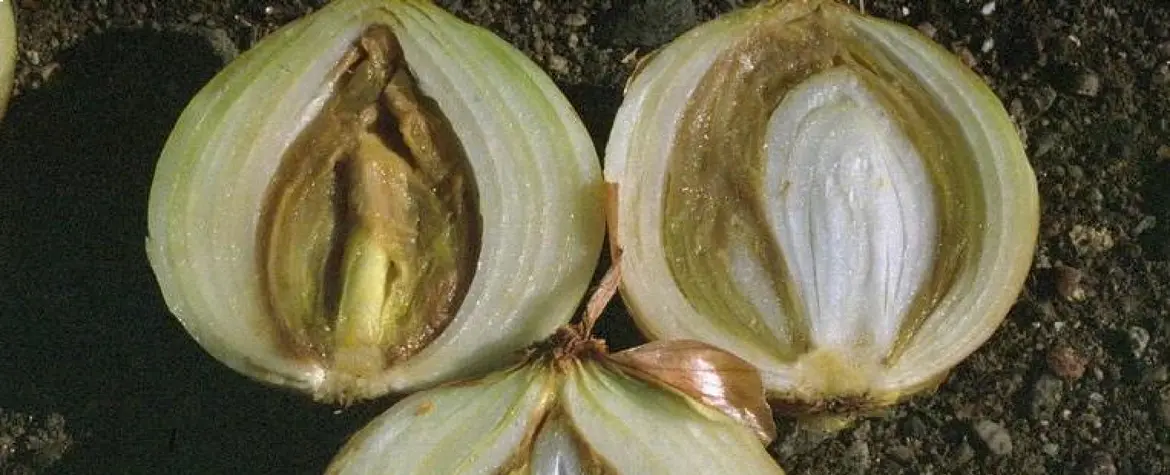EBDOmics – Comparative genomics of Enterobacter spp. causing Bulb Decay of Onions

Description
Enterobacter bulb disease of onions (EBDO) is caused by members of the Enterobacter cloacae complex. This includes a diverse group of Enterobacter species that occur as clinical isolates and in the environment. Although EBDO has been known for several years, no systematic study has been conducted on their correct taxonomy of the isolates, nor on the virulence factors that are specific to those occurring as plant pathogens.
The position of the EBDO isolates within the genus Enterobacter using modern taxonomic and phylogenomic methods will be determined. For this purpose, a number of isolates will be collected and tested for their ability to cause EBDO (WP1). Complete genomes of plant pathogenic isolates will be sequenced and used for taxonomic determination (WP2). Furthermore, factors involved in their pathogenicity to plants and humans can be identified from pan genome analyses of plant pathogenic versus clinical isolates and tested for their role in onion pathogenicity (WP3). Based on the genome sequences, field-deployable LAMP-based diagnostic assays will be developed for those taxa containing plant pathogenic E. cloacae complex isolates (WP4). This will enable the early discovery of the plant pathogen in the field.
Overall, this project will deliver a detailed insight into factors that may discriminate between plant pathogenic, environmental, and clinical isolates within the E. cloacae complex, and lay a solid base for further studies on prevention and management of the plant disease, EBDO. In addition, knowledge on the taxonomy and the evolutionary processes that may have occurred within the E. cloacae complex may explain their role as important opportunistic human pathogen.
Key Data
Projectlead
Deputy Projectlead
Project team
Project partners
University of Pretoria; University of the Witwatersrand; University of Venda; University of Limpopo
Project status
ongoing, started 01/2022
Institute/Centre
Institute of Natural Resource Sciences (IUNR)
Funding partner
SNF-Projektförderung
